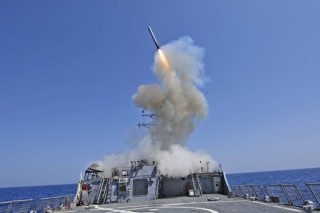Loading
Search
▼ Japanese Government Delaying Debate Over Key Defense Issues
- Category:Other
On one hand, the government is speeding up its efforts to enhance deterrence by deciding to move up the planned introduction of long-range missiles that can directly attack military hubs of other nations.
But on the other, decisions on key defense issues have been pushed back as the foundation of the administration of Prime Minister Fumio Kishida is shaken by a high-profile scandal over slush funds related to fundraising parties for Liberal Democratic Party factions.
Saturday marked one year since a Cabinet decision related to the government's three key defense-related documents, including the National Security Strategy, which calls on the country to possess counterstrike capabilities.
At a news conference Friday, Defense Minister Minoru Kihara announced a plan to move up — by one year from fiscal 2026 — the deployment of an upgraded version of the domestically developed Type 12 surface-to-ship missile, with a firing range of over 1,000 kilometers.
In October, Japan agreed with the United States to buy U.S.-made Tomahawk cruise missiles in fiscal 2025, which ends in March 2026, one year earlier than previously planned.
Japan is hurrying to upgrade its defense equipment and enhance deterrence because the international situation became "even more severe" in the past year, according to Chief Cabinet Secretary Yoshimasa Hayashi.
In addition to these moves, a joint operations command for the Air, Ground and Maritime Self-Defense Forces is slated to be established at the end of fiscal 2024. The joint command will be in charge of formulating operation plans to beef up the country's response capabilities.
Meanwhile, important decisions related to measures to strengthen security have been deferred.
The government plans to revise the operational guidelines for the three principles of defense equipment exports. But an item covering transfers of finished products developed with other nations to third countries was not included in a proposal to the government adopted Wednesday by a team of ruling coalition officials.
That was because Komeito, the LDP's junior partner, hardened its stance. Komeito's change of heart was apparently a result of the turmoil within the Kishida administration, a government source said.
On Friday, Kishida instructed lawmakers including former Defense Minister Itsunori Onodera of the LDP, head of the team of officials, to hold full-fledged discussions from early next year on exports of internationally developed defense equipment.
But it remains to be seen if that plan will go smoothly.
In a similar vein, the government had planned to convene by year-end a meeting of experts on a legal framework for the introduction of "active cyber defense," which constantly monitors possible signs of cyberattacks.
However, discussions on the matter will likely be pushed back to next year because of concern that active cyber defense could run counter to the right to secrecy of communication, which is guaranteed by the Constitution.
The government has set its defense outlays for the five years from fiscal 2023 at ¥43 trillion.
In the wake of the yen's depreciation and surging prices, however, that figure may need to be adjusted, according to a senior Defense Ministry official.
In addition, the ruling parties' fiscal 2024 tax system reform package, adopted Thursday, failed to stipulate the timing of starting tax hikes to eke out revenue for the planned defense spending boost, reflecting the current tough political situation.
- December 17, 2023
- Comment (0)
- Trackback(0)


